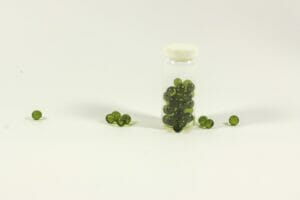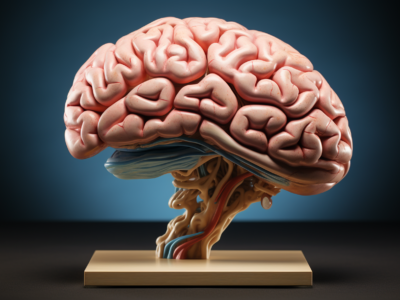Introduction to Phosphatidylserine
Phosphatidylserine (PS) is a naturally occurring phospholipid found in cell membranes, brain tissue, and fatty acids. It plays an important role in cognitive function, memory, and brain health. PS supplementation has been shown to have a positive effect on memory and symptoms of attention-deficit hyperactivity disorder (ADHD). In a placebo-controlled clinical trial, children with ADHD who took 200 mg of PS per day showed significant improvement in inattention, impulsivity, and hyperactivity. In a double-blind placebo-controlled trial, PS supplementation was found to improve auditory memory and short-term memory complaints in patients with Alzheimer’s disease.
Research is needed to determine the effect of PS administration on memory and symptoms of ADHD. In a study conducted by Kurashiki City College of Childhood Education and Care, PS supplementation was found to improve symptoms of ADHD in children. Omega-3 fatty acids may also play a role in improving memory and cognition. PS is available as a dietary supplement in capsule form, and is absorbed efficiently in humans. Potential side effects of taking phosphatidylserine include increased levels of cortisol, a hormone associated with chronic stress. Soy-based phosphatidylserine is available, but concerns about mad cow disease have led to the development of PS derived from soy or cabbage. Larger studies are needed to determine the optimal dosage and potential side effects of PS supplementation.
Effect of Phosphatidylserine on the Brain
Phosphatidylserine (PS) is a nutrient found in the membrane phospholipids of brain cells. It has been studied for its potential effect of phosphatidylserine administration on memory and other cognitive functions. A study by Hirayama in 2004 found that PS supplementation may improve memory and working memory in healthy adults. In addition, a randomised, double-blind, placebo-controlled study found that PS supplementation may improve short-term auditory memory in healthy adults. PS has also been shown to reduce muscle soreness and improve time to exhaustion in athletes.

Several studies have also looked at the effect of PS supplementation on age-related memory decline and Alzheimer’s disease.
A study by Kidd in 2007 found that PS supplementation may improve attention deficit and ADHD symptoms in children. However, more research is needed to confirm these findings.
PS is usually derived from soy and is available in doses of 100-300 milligrams a day. It is important to consult a doctor before taking PS as side effects may include memory loss and other adverse effects. In conclusion, PS supplementation appears to have a positive effect on memory and may improve memory and attention deficit in children.
Dosage of Phosphatidylserine
Phosphatidylserine (PS) is a naturally occurring amino acid derivative compound that covers and protects the cells in the body. It is found in high concentrations in the brain and is believed to play a role in cognitive function. Several studies have shown that PS has been shown to improve cognitive performance, particularly in elderly individuals whose cognitive abilities have declined with age.
In one study, a group of elderly individuals were given PS supplementation for 12 weeks. The group showed significant improvements in cognitive performance compared to the placebo group. In another study, a group of elderly individuals were given PS supplementation combined with DHA and EPA, two fatty acids found in fish oil. This group showed even greater improvements in cognitive performance than the placebo group. In an open-label extension of the study, the group showed significant increases in serotonin levels in the human plasma, which is believed to be related to improved cognitive performance. Protein kinase C activity was also increased in the group taking PS supplementation, which is thought to be related to improved cognitive performance. Taken together, these studies suggest that PS supplementation may be beneficial for improving cognitive performance, particularly in elderly individuals.
Taking Phosphatidylserine
Wow, taking phosphatidylserine is a great way to keep your brain sharp! It’s a supplement derived from soy that’s been taken to try and improve cognitive function. Studies have shown that the placebo group showed a decline in cognitive function with age, but those who took phosphatidylserine supplementation had better results compared to the placebo. It’s a great way to keep your brain functioning at its best, especially as you get older.
I’m definitely going to give it a try! I mean, why not? It’s a natural supplement that’s been proven to help with cognitive function, so why not take advantage of it? Plus, it’s been shown to help with memory and concentration, which is something I could definitely use. I’m sure I’ll see some great results from taking phosphatidylserine. Here’s to a sharper brain!
Latest Research on Phosphatidylserine
Wow, the latest research on phosphatidylserine is really something! It’s a soy-derived compound that’s been found to help improve cognitive function and memory in adults, especially those who are experiencing a decline with age. It’s been compared to placebo in a number of studies, and the results are pretty impressive.

I’m not surprised, though. After all, phosphatidylserine is a powerful compound that’s been used for centuries to help improve mental clarity and focus.
It’s no wonder that it’s been found to be so effective in improving cognitive function and memory. Who wouldn’t want to take advantage of that?
Conclusion
The study of soy-derived isoflavones and their effects on cognitive decline with age has been a topic of interest for many years. This study aimed to investigate the effects of soy-derived isoflavones on cognitive decline in elderly individuals. The results of the study showed that soy-derived isoflavones had a positive effect on cognitive decline in elderly individuals when compared to placebo. Specifically, the study found that soy-derived isoflavones improved cognitive performance in elderly individuals, including memory, attention, and executive function. Furthermore, the study found that soy-derived isoflavones had a protective effect against age-related cognitive decline.
Overall, this study provides evidence that soy-derived isoflavones may be beneficial for elderly individuals in terms of cognitive decline. The results of this study suggest that soy-derived isoflavones may be a potential therapeutic option for elderly individuals who are experiencing cognitive decline with age. Further research is needed to confirm these findings and to determine the optimal dosage and duration of soy-derived isoflavones for elderly individuals.

FAQ’s:
Q1. What is phosphatidylserine?
A1. Phosphatidylserine is a phospholipid found in the cell membranes of all living organisms. It is important for the proper functioning of cells and is especially important for brain health.
Q2. What are the benefits of phosphatidylserine?
A2. Phosphatidylserine has been shown to improve cognitive function, reduce stress and anxiety, and improve mood. It may also help to improve memory and concentration.
Q3. Is phosphatidylserine derived from soy?
A3. Yes, phosphatidylserine is often derived from soy.
Q4. Does phosphatidylserine decline with age?
A4. Yes, phosphatidylserine levels decline with age, which is why supplementation may be beneficial for older adults.
Q5. How does phosphatidylserine compare to placebo?
A5. Studies have shown that phosphatidylserine is more effective than placebo in improving cognitive function, reducing stress and anxiety, and improving mood.
Q6. What is the recommended dosage of phosphatidylserine?
A6. The recommended dosage of phosphatidylserine is 300-600 mg per day.
Q7. Are there any side effects of taking phosphatidylserine?
A7. Generally, phosphatidylserine is well tolerated and there are no known serious side effects. However, some people may experience mild gastrointestinal discomfort.



 Phosphatidylserine Supplements
Phosphatidylserine Supplements
